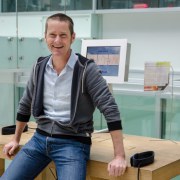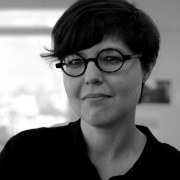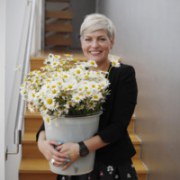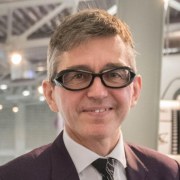Cultivating local science communication talents
Find this session's presentations here.
X-factor, The Voice, MasterChef, you name it, talent scouting is a big thing and makes prize-winning television. Do we embrace science communication talent just as passionately as we embrace young singers and chefs? Can we spot and support these talents? Or is science communication too important to leave to young talents? But then, they will shape the future of science.
Initiatives like FameLab, science cafés and festivals appeal to young talent and give them an opportunity to tell about their own work. While on the other hand, and more importantly, it shows audiences that science is a human endeavour and not a textbook exercise.
In this session, we'll adress the following questions: how can universities nurture the communication skills of PhD-students and post-docs? Do young talents get the chance to develop into mature science communicators? When young researchers tell about their work, do audiences still get to discuss more difficult ethical issues or social responsibility? And as major concern, where do science centres and museums come in?
Session speakers
Suzana is working on a traveling exhibition 'Beyond the lab' created as part of the Sparks project. The exhibition is touring all over Europe showing innovative ways of putting RRI into practice in health and medicine. In the exhibition, a very young inventor is invited to explain how he got the idea and elaborated a very socially relevant application. Through Science Espressos and Reverse Science Cafés he is discussing the hot features of his new creation.
Hiša eksperimentov uses a variety of formats to encourage young researchers to communicate with public. Several times a year we organise »Science Showroom« where young science talent can interact with visitors about their research passion. After the first step we re-invite them to give a lecture in the »TEAching Science” - Café Scientific with TEA and cookies. Both sides benefit from the collaboration, so we develop long term relationships that may result in other activities together.
The Copernicus Science Center in Warsaw hosts and supports many different activities to give the floor to young talent, ranging from small scale or one time only public lectures and science espresso’s all the way to our very large ‘science picnic’ event. As a large national science center the question is what the drivers are to involve young researchers, what possibilities we really have, or want, to support and train them. And, do we think this is enough?
Each month, Technopolis - the Flemish Science Centre invites scientists to give a lecture to children 8 to 12 years old. The scientists talk about a research topic appealing to a young audience and on a accessible level, followed by Q&A. We help them prepare for this - for the scientist- quite unusual audience. What do these communication talents learn? What do we, and the children, expect from them?





